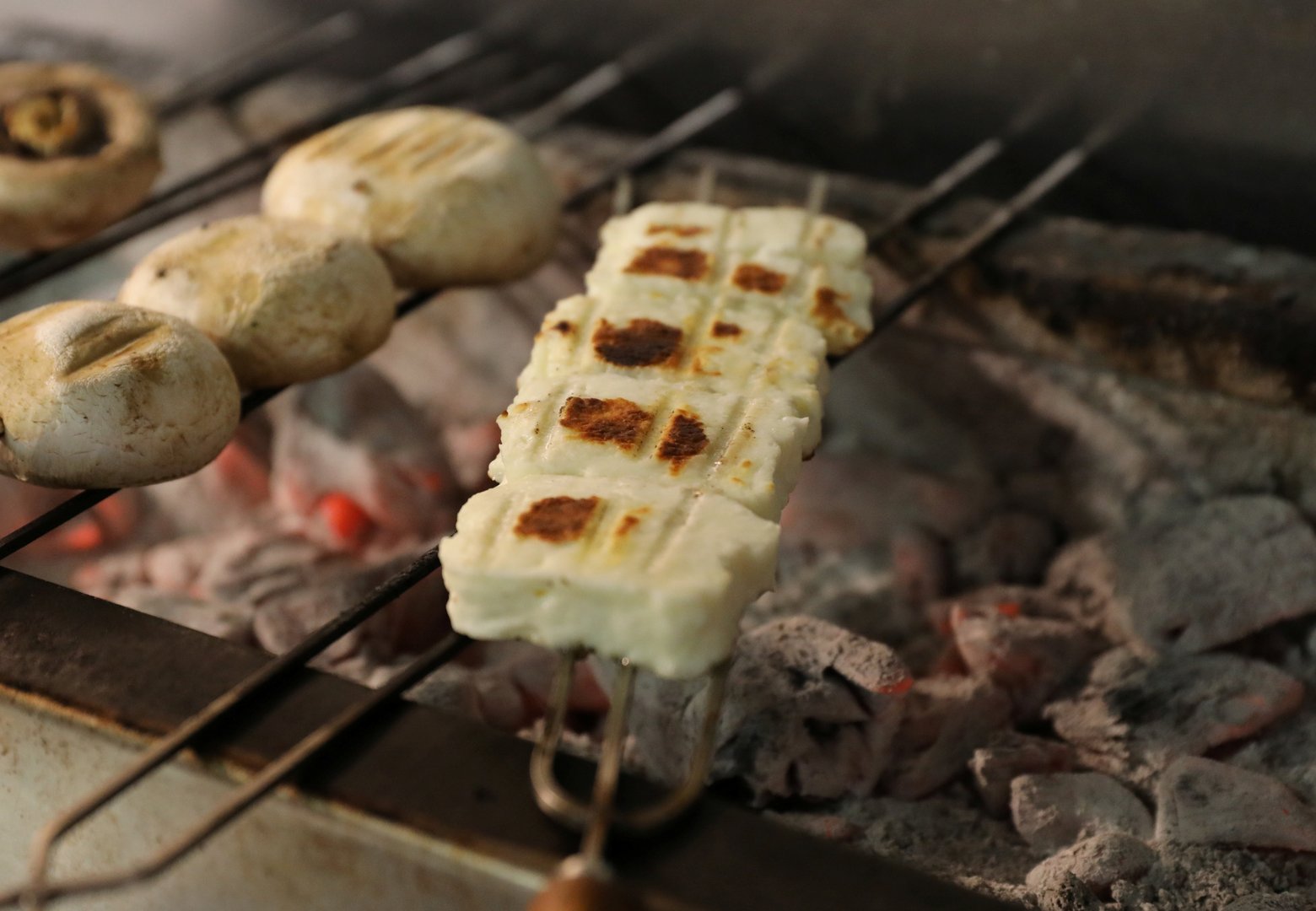By Nikolaos Prakas and Elias Hazou
The government on Thursday proposed extending to February 21 the validity of an existing decree regulating the composition of halloumi cheese, in a last-ditch bid to get cheesemakers not to go through with planned strikes next week.
Cheesemakers, who earlier had threatened to shut down their factories as of January 10 over an ongoing dispute over the ingredients that make up PDO (Protected designation of Origin) halloumi, said they would internally debate the proposal on Friday and take it from there. Should they reject the government’s pitch, their strike action would go forward.
Attending the three-hour meeting at the presidential palace, was President Nikos Christodoulides, Agriculture Minister Petros Xenofontos, and representatives of the Cheesemakers Association.
Speaking to media later, government spokesman Constantinos Letymbiots said that under the proposal put to the cheesemakers, the current decree on halloumi would be extended from February 1 to February 21.
Under the existing decree, issued last October, the mandatory quota of sheep’s and goat’s milk in manufactured halloumi was 19 per cent up until February 1. After that date, the quota would have gone up to 25 per cent.
The government now proposes keeping the 19 per cent for a little longer – until February 21.
The reason for that date, the spokesman explained, is that it is the same day the European General Court will issue a ruling on the matter.
At the same meeting the two sides agreed to continue the dialogue in the meantime and to meet again in the first week of March to take stock of the situation.
“The government and the Cheesemakers Association have a common goal – to promote halloumi,” the spokesman noted.
Prior to Thursday’s meeting, cheesemakers had complained the agriculture ministry was pressuring them to stop producing halloumi cheese from exclusively sheep’s and goat’s milk. They said that was not feasible, as no surplus of milk exists to cover the needs for both that type of halloumi and for the halloumi that also contains cow’s milk.
The European Commission had given Cyprus a transitional period until July 2024 regarding the content of PDO-standard halloumi. From the beginning of February to July, the minimum sheep’s and goat’s milk content should be 25 per cent. After the July cutoff, the content would gradually increase so as to finally achieve a 50-50 split between sheep’s and goat’s milk, and cow’s milk.
In the meantime, cow livestock farmers had said that if the cheesemakers went on strike, they would dump milk outside the presidential palace.
The dispute comes after the Cheesemakers’ Association announced in October that it would not be bound by a framework agreement struck in July 2022, which provided for the “good-faith implementation of the legislation” pertaining to changes in milk quotas in halloumi to include a greater proportion of milk sourced from animals other than cows.
Cheesemakers and cattle farmers want an extension of the transition period for another five years, which would take the transition period to 2029.
They also said the government had not kept to its side of the bargain regarding the agreement, saying the text of the agreement was never sent to the Competition Protection Commission, with the result that cheesemakers may receive fines for their actions.







Click here to change your cookie preferences